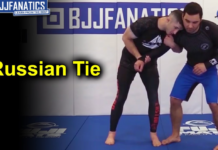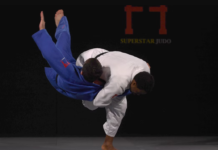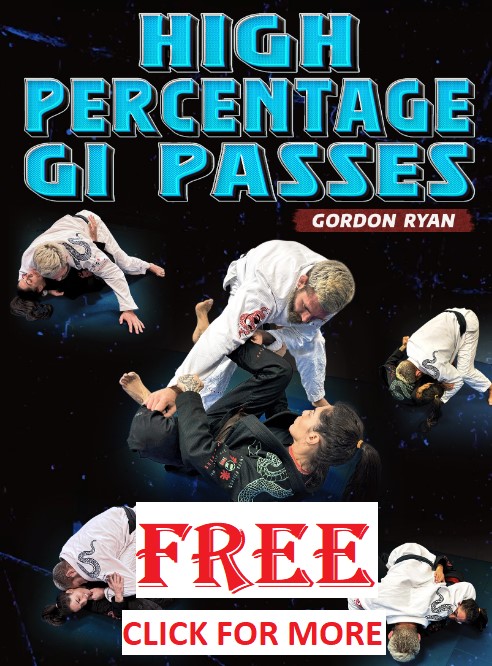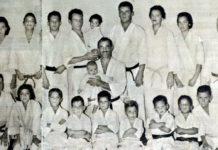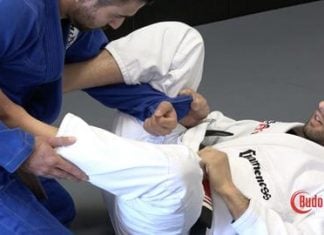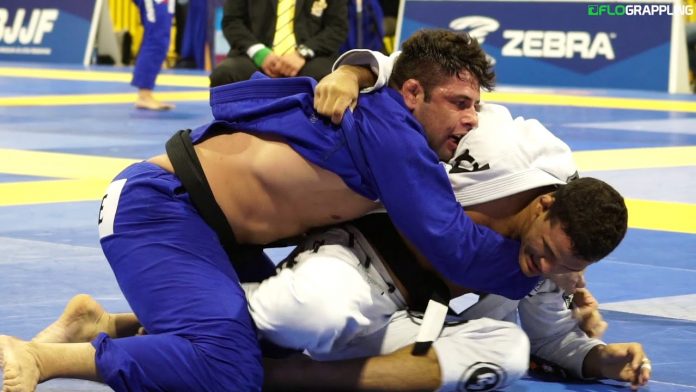
Congratulations! You’re about to change your whole life by signing up for BJJ! Pyjama wrestling is a lot of fun, so much so that, after a month or so, you’ll get fully addicted. However, the first few weeks of training are going to raise more questions than answers. The most important one that you won’t find a good answer to is “why am I returning to a place where people are choking, crushing, and torturing me”? The answer to that one comes down the road, just grind your teeth and keep showing up. After you decide that you’re all in, no bluffing, the questions that take over are all about training. And the very first one is about Gi. Having answered the same questions time and time again, I put together this comprehensive BJJ Gi Guide to cover all the usual inquiries by beginners.
If you come to BJJ without any prior martial arts experience, the Gi is probably going to seem strange to you. First and foremost,t you’ll have no idea where to find one. It’s not like there are BJJ Gi shops on every corner. Your academy might have some on sale, but you’re best bet is to go online. It is hard to figure out what the best BJJ Gis for you are, particularly when you’ve never worn one. Even then, buying a Gi raises more questions than answers. What color? What size? How many Gis do I need? Can I compete in My Gi? Why is BJJ Gi so expensive? Let’s tackle some of these burning beginner questions once and for all with our BJJ Gi Guide.
The Ultimate BJJ Gi Guide
The reason I put together this guide is to offer beginners a condensed source of information. Well that, and have a reference every time I hear one or all of all the questions we’ll cover today. It is not that I’m tired of answering them. It is just simpler to have it all down in the BJJ Gi Guide, along with all the links that lead to respective categories. Basically, this is something I wish I had when I was starting out. BJJ Gis are different to any other Gi I’ve worn before (and I’ve had them all on) and there’s a lot more thinking going into it.
To be fair, one look at common price tags, and you’ll understand why people fuss over everything. Getting a BJJ Gi is a big step forward, and one that’ll set you back a couple of hundreds of dollars. Well, not necessarily, as our BJJ GI guide is going to show you.
Before we get down to answer some questions, let’s just clear up one thing. You CAN train JIu-JItsu without ever owning, or even putting on a Gi. On the other hand, if you really want to experience The Gentle Art, then you absolutely SHOULD train both with the Gi and without it. That said, a good rashguard is a smart thing to own in both cases. However, make sure you balance Gi and No-Gi training, and if you really have to choose one, as a beginner, my advice is to lean towards training in the Gi.
What Is a BJJ Gi?
A BJJ Gi is a uniform that is used for training and competition. The BJJ Gi usually consists of three main parts – the jacket, the pants, and the belt. Unlike other martial arts’ Gis, BJJ kimonos often arrive without a belt, so make sure you get one additionally.
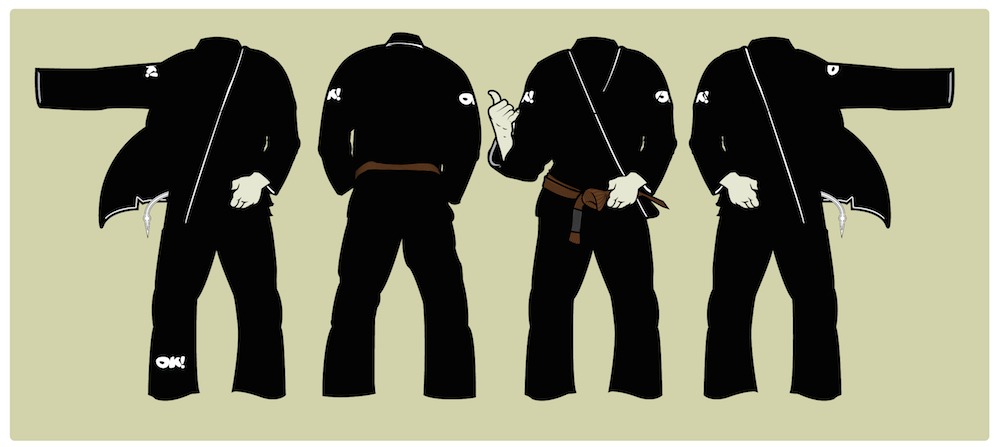
Most Jiu-Jitsu Gis are made of cotton and are highly breathable and resistant to odor retention and microbes. They come reinforced and in a variety of weaves, each offering different levels of sturdiness and weight of the Gi.
Why Do We Wear A GI?
This question is too large to answer in detail in our BJJ Gi GUide for beginners. What you need to know, though is that the reason we wear a Gi in Jiu-Jitsu today is plenty. From hygienic to technical reasons the Gi pretty much defines BJJ. However, the main reason the Gi is a part of BJJ is a historical one.
Gi’s, albeit much different than today, were worn beneath armor by Japanese Samurai. After the era of the Samurai, and the discarding of the armor, Gis became the official uniform for training Japnese Jiu-Jitsu. When Judo came to be, Jigro Kano modified the Gis to fit the needs of the sport, coming up with the Gis we know today. Later on, during the emergence of BJ Jin Brazil, BJJ Gis underwent another transformation to fit the needs of Brazilian Jiu-JItsu in particular.
Today, Gis not only reflects a uniform to train in and a powerful weapon to use but also reflects equality among the students. When everyone is wearing the same type of clothes, everyone is regarded as equal on the mats.
What Color Should Your Gi Be?
Colors are not that complicated to figure out. Basically, you can wear any color or combination of colors when you’re training. Some large associations do have their own Gis and might want to insist on you having to wear a certain type of a Gi. However, color is mainly down to you.
Still, there’s one main rule to follow. If you do not know what color Gi you should take, always go for white. If you don’t particularly like it, you’re other two safe options are black or blue. While training in any color is okay, the aforementioned three colors are the only ones allowed in most competitions. Given that most people tend to at least give tournaments a try, getting a Gi that’ll fit both needs is always smart.
How Many Gis Should You Own?
This one is a tricky one. The more the better is the best answer that fits all. However, this might be financially demanding. Of course, you can opt for BJJ Gis that comes cheaper and offer quality. However, in terms of the number of Gi’s, the bare minimum would be two.
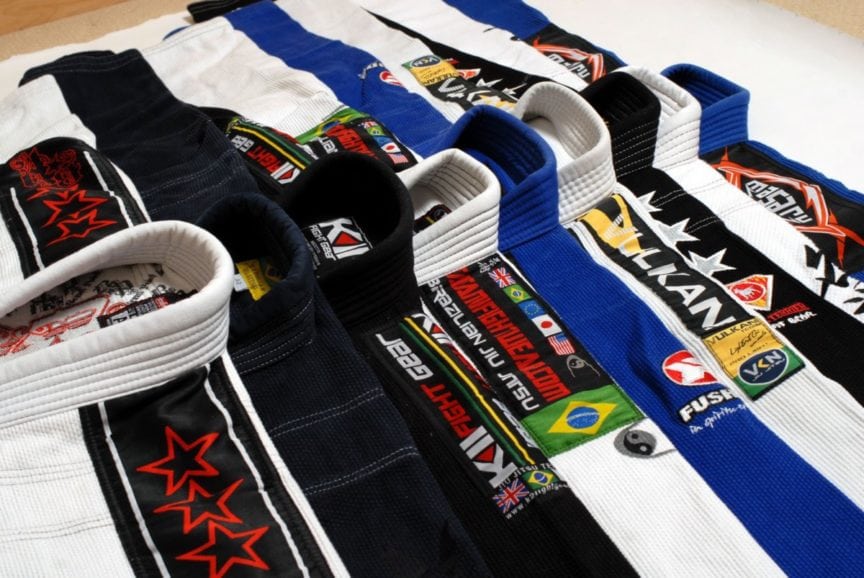
Regardless of how many times per week you train, if it is more than one, you need two Gis. The reason for this is that you need to have a fresh Gi each time you come into training. Washing one Gi over and over again is next to impossible. Plus, it is going to shorten the lifespan of your Gi significantly. Plus, when you have two, you can be creative with one of them and have a competition legal second one. So get two, or more Gis, the sooner, the better.
Competition And Training Gis
These are usually not different unless you went for a custom version of a GI. Refer the following part of our BJJ Gi guide for more information on that. Basically, your training Gi can double as a competition Gi, as long as it fulfills requirements. That means that when you’re getting a training Gi, always try and find one that fits tournament criteria.
When choosing separate competition Gi’s I’d recommend you to consider lightweight BJJ Gis. They cost less, weigh less, and are much more comfortable than heavier Gis. As far as I’m concerned, they’re also great for training as well. Almost all my Gis are lightweight and I tend to keep it that way.
Custom Gis
Custom Gi’s are where things get fun. I won’t be able to point out how you can customize your own Gi In this BJJ Gi Guide. You can go for patches, colors, or even have someone put together a Gi especially for you. I could, however, point you towards some of the coolest looking Gis on the market today!

What’s With The Price Tag On This Gi?
Do not let the price tags on most Gis deter you. As previously mentioned in this BJJ Gi Guide, Gi’s are made of cotton and often weaved in a very particular pattern. That makes them reliable, sturdy, and long-lasting. It also means they cost way more than a Karate Gi. This is one reason why you better invest in two or more Gi’s like that way, you’ll extend their life span much longer. Just as a reference, I still have my first Gi, 8 years after getting it. Moreover, its’ still in acceptable condition to train in. And I own a total of four Gis, including that one. So, shop smart and you’ll get the most out of it.
Another perfect option is to go for cheaper Gis. Get yourself a few Gis’ while they’re on sale or at a discount and you get the best of both worlds. A high-quality study Gi to train and compete in, and a pocket-friendly price. Buying second-hand is also a great option, particularly as a beginner.
Are Crossover Gis Alright?
By crossover Gi’s I mean using an Aikido, Judo, or Sambo Gi to train in. They’re all useful, but all of them fall short of the real thing. With a Sambo Gi, in particular, you still face the issue of obtaining Gi pants. So, this one quickly bites the dust. Oh, and don’t even think about Karate or Taekwondo Gis. You’ll have to throw them in the garbage after the first roll.
Aikido and Judo Gi’s work good, although they’ll land you in a lot of trouble. Their cuts are generally wider, especially at the sleeves and pants. That means a lot more gripping material for your opponents. Furthermore, these Gis are softer, and much easier to manipulate, particularly around the collar. While they can do the trick for a short while, they should be no more than an introductory or transitionary Gi option for Jiu-Jitsu.
What Do All These Gi Sizes Mean?
Finally a word or two on Gi sizes. The moment you go online to buy a Gi, you’ll run into a few different options. First, you get to choose the type of Gi you want. We’re clear on that. then, there’s color. We also cover that in our BJJ Gi Guide. Finally, before you order, you’ll also have to choose a size. What you get there is a letter, usually A (standing for an adult) and a number. The usual numbers range from A0 to A6. Very often, however, there are also additional numbers and/or letters.
Basically, you need to know two things about sizes. The same size can be very different for two different Gi brands. So, make sure you always consult the size charts that accompany the purchase option. Next, consider the shrinkage rate. Most Gi’s will shrink anywhere from 3-10%. Talk to people that already own a certain Gi brand, or check out our complete BJJ Gi reviews and guide where the shrinkage rate is covered for every Gi.
Conclusion
Apart from getting one the moment you step on the mats, you’re going to hate the Gi at first. The first time you put it on, you’ll feel strange. Then comes the belt, and figuring out how to tie it like everyone else. And we’re still not down to the worst part. The first roll in the Gi is going to confuse you more than anything. Why do people keep choking me with my own Gi? How come they can hold me down so tightly? The answers to these questions are going to reveal themselves on the mats. In terms of Gi fundamentals, though, we offer you our ultimate BJJ Gi Guide! Hopefully, you found it helpful!
Best Lightweight BJJ Gi and Jiu-Jitsu Gi in 2020 – Guide And Reviews



